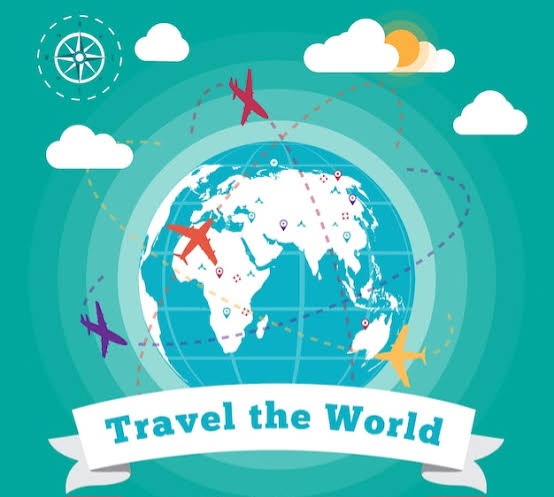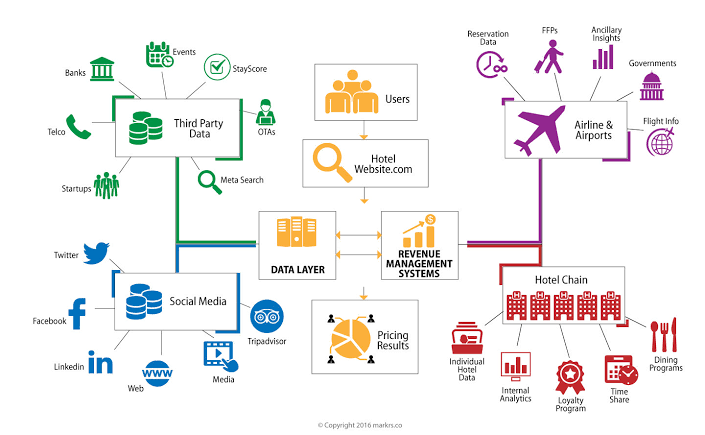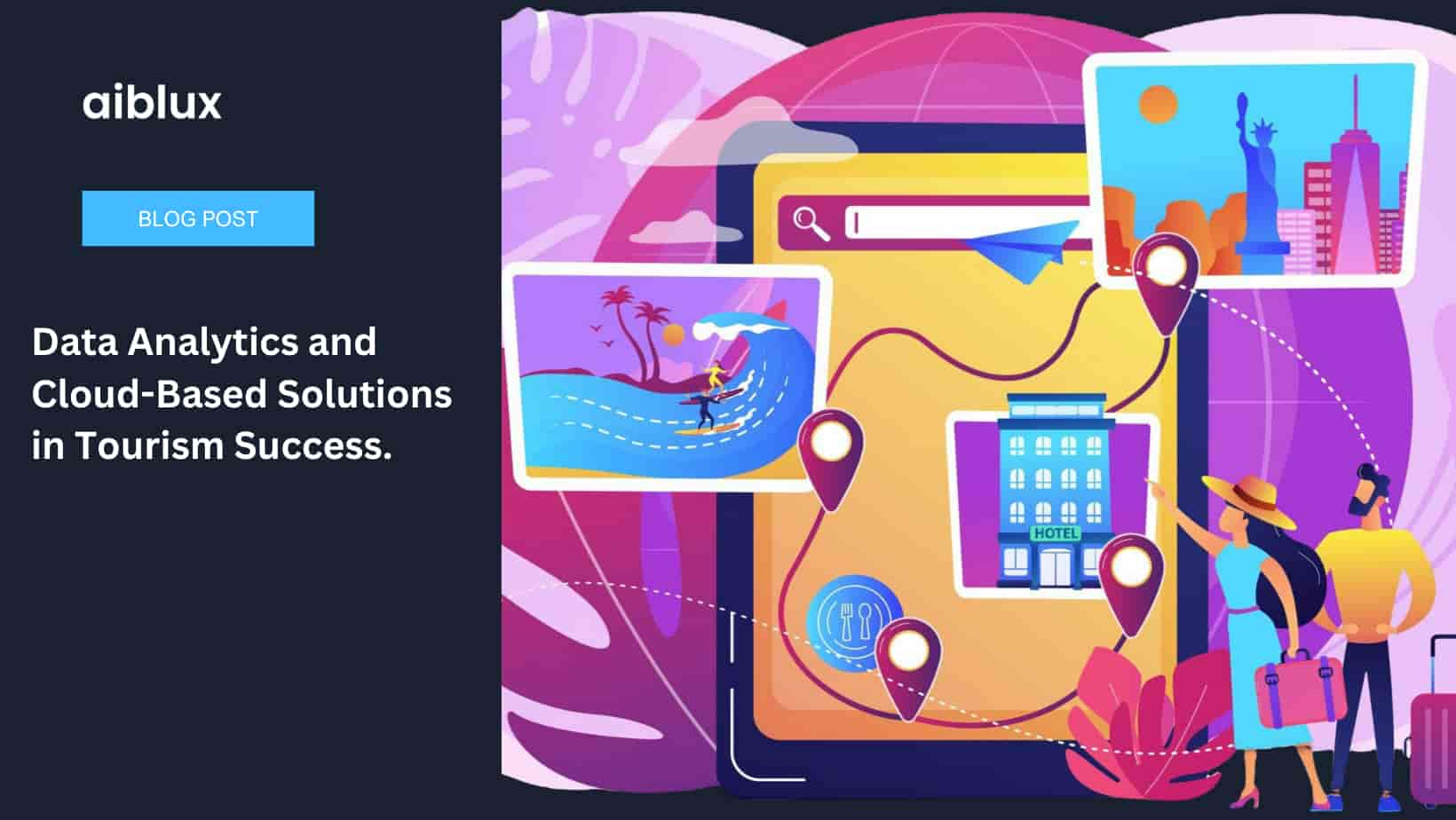The tourism industry is experiencing a paradigm shift, driven by the integration of data analytics and cloud-based solutions. These innovative technologies are not just enhancing operational efficiency but are reshaping the entire travel experience, offering businesses and tourists unprecedented opportunities for growth and exploration. In an increasingly digital world, data analytics and cloud solutions are essential tools for boosting tourism success, improving customer satisfaction, and unlocking new business potential.

In this article, we will explore how data analytics and cloud-based solutions are revolutionizing the tourism industry, empowering businesses to provide personalized services, streamline operations, and create more sustainable travel experiences. We will also delve into real-world case studies that highlight the effectiveness of these technologies in action, showcasing their transformative impact on tourism.
The Power of Data Analytics in Tourism
Data analytics is a game-changer for the tourism industry. It enables businesses to harness large volumes of data, providing valuable insights into customer behavior, market trends, and operational performance. This data-driven approach is helping tourism businesses make informed decisions, optimize their marketing strategies, and enhance customer engagement.
Personalizing the Travel Experience
One of the most significant benefits of data analytics in tourism is the ability to personalize the travel experience. By analyzing customer data, such as past travel behavior, preferences, and social media activity, tourism companies can create tailored offers that resonate with individual travelers. This personalization builds stronger customer relationships, increases satisfaction, and boosts loyalty.
For example, a hotel chain can analyze guest data to understand the preferences of frequent visitors. This information can be used to offer customized packages, such as room upgrades or personalized concierge services, making guests feel valued and appreciated.
Predicting Trends and Demand
Data analytics also allows tourism businesses to predict demand more accurately. By analyzing historical data and trends, companies can forecast the best times to launch promotions, adjust pricing strategies, and even optimize staffing levels. This predictive capability helps businesses stay ahead of the curve, ensuring they are prepared for fluctuations in demand and can maximize revenue opportunities.
Fact: According to a 2023 report by the World Tourism Organization (UNWTO), data-driven demand forecasting helped companies in the tourism sector increase their revenue by up to 20%.
Improving Operational Efficiency
Tourism businesses are increasingly relying on data analytics to streamline their operations. From flight schedules to hotel bookings and tour itineraries, data analytics can help optimize resources, reduce costs, and ensure smoother operations. By analyzing data in real-time, companies can make quick adjustments to avoid disruptions, improve operational workflows, and deliver a better experience for travelers.

Cloud-Based Solutions: The Backbone of Tourism Innovation
Cloud-based solutions are playing a crucial role in driving tourism success. These technologies allow businesses to access vast amounts of data and applications remotely, eliminating the need for costly infrastructure and enabling seamless collaboration across different departments and locations.

Enhancing Collaboration and Efficiency
With cloud-based solutions, tourism businesses can easily share data and collaborate in real-time. This enhanced collaboration leads to quicker decision-making, improved customer service, and more efficient operations. For example, a tour operator can access customer data stored in the cloud to adjust itineraries and services in real-time, ensuring a more personalized and responsive experience.
Scalability and Flexibility
Cloud-based solutions offer scalability and flexibility, two essential characteristics for businesses looking to grow in the competitive tourism market. Whether a company is managing a small boutique hotel or a large-scale airline operation, cloud technology can easily scale to meet the needs of the business, without the need for significant upfront investment in physical infrastructure.
Case Study: Airbnb, a leading player in the online travel and lodging space, uses cloud-based solutions to scale its platform globally. By leveraging cloud technology, Airbnb has been able to grow rapidly, expanding into new markets and offering seamless booking experiences for millions of users worldwide.
Reducing Costs and Improving Security
Cloud computing also helps tourism businesses reduce costs by eliminating the need for on-premises servers and infrastructure. Additionally, cloud-based solutions provide robust security features, ensuring that sensitive customer data is protected from cyber threats. With the growing emphasis on data privacy and security, adopting cloud technologies is essential for tourism companies looking to build trust and safeguard their operations.
Fact: The global cloud computing market in tourism is projected to reach $15 billion by 2025, driven by the increasing adoption of cloud services in the sector.
The Future of Tourism: A Data-Driven and Cloud-Powered Industry
The future of tourism is bright, with data analytics and cloud-based solutions paving the way for innovation, growth, and sustainability. As technology continues to evolve, tourism businesses that embrace these tools will be well-positioned to capitalize on new opportunities, enhance customer experiences, and drive long-term success.
The integration of data analytics and cloud technologies into tourism operations will lead to smarter, more personalized services, greater efficiency, and more sustainable travel practices. Whether it’s a small local business or a large multinational corporation, the potential for success in the tourism sector has never been greater.
Our Role and Services in Leveraging the Tourism
AIBLUX is a technology solutions provider specializing in innovative services that can significantly enhance the tourism industry. By leveraging data analytics and cloud-based solutions, AIBLUX offers tailored services to improve operational efficiency, personalize customer experiences, and drive business growth.
Data Analytics in Tourism
AIBLUX’s data analytics services enable tourism businesses to extract valuable insights from vast datasets, facilitating informed decision-making. By analyzing customer behavior, market trends, and operational performance, businesses can:
- Personalize Services: Understand individual preferences to offer customized travel packages and experiences.
- Optimize Operations: Identify inefficiencies and streamline processes to reduce costs and enhance service delivery.
- Forecast Demand: Predict travel trends to adjust offerings and pricing strategies accordingly.
For instance, AIBLUX’s expertise in data engineering and UI/UX design has empowered businesses to automate processes, increasing efficiency and productivity.
Cloud-Based Solutions for Tourism
AIBLUX’s cloud-based solutions provide scalable and flexible infrastructure, essential for modern tourism operations. These solutions offer:
- Scalability: Easily adjust resources to meet fluctuating demand, ensuring optimal performance during peak seasons.
- Accessibility: Access data and applications remotely, facilitating real-time collaboration and decision-making.
- Cost Efficiency: Reduce the need for significant upfront investment in physical infrastructure.
By migrating infrastructure to the cloud, businesses have experienced significant improvements in website performance and uptime.

Conclusion
In conclusion, the tourism industry is on the cusp of a digital transformation, and data analytics and cloud-based solutions are at the heart of this change. By leveraging these powerful technologies, businesses can unlock new levels of success, foster innovation, and deliver extraordinary experiences for travelers around the world.
By integrating AIBLUX’s data analytics, cloud-based solutions, and AI-powered services, tourism businesses can enhance operational efficiency, personalize customer experiences, and drive growth. Embracing these technologies positions businesses to thrive in the evolving tourism landscape.
